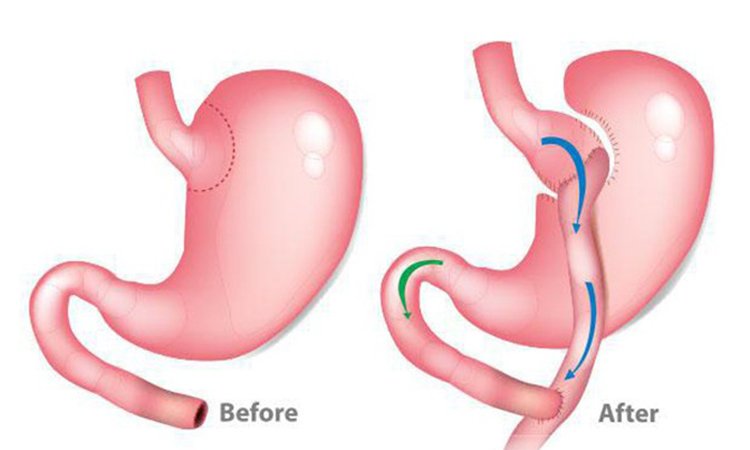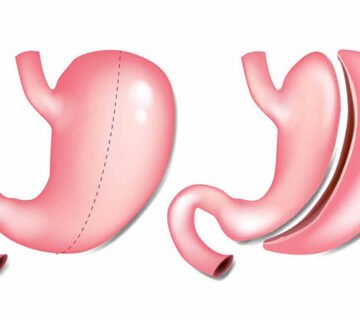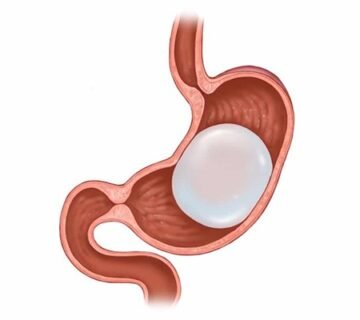Gastric bypass surgery is a golden option , as it results in more weight loss than gastric banding, and its results are also superior to gastric sleeve surgery. The main goal of gastric bypass surgery is to combat obesity and lose weight.
This type of operation is characterized by the fact that the weight lost resulting from gastric bypass remains constant in the long term.
BOUT THE OPERATION
The stomach is divided into two parts, the upper section is called (the gastric pouch), which receives food and redirects it to the small intestine without passing through the duodenal ducts. The lower section is the largest and connects with the isolated part of the duodenum to be connected to the small intestine again.The gastric bypass operation aims to reduce the size of the stomach and thus reduce the amount of food consumed. In the process, the lower section and duodenum are isolated. It works to reduce the secretion of some intestinal juices and hormones that work to open the appetite, such as the hormone ghrelin, thus reducing appetite and a sense of satiety with small amounts of food. Diversion also helps type 2 diabetics to avoid absorbing sugars from food and thus maintain blood sugar levels.
WHO ARE THE CANDIDATES FOR THE OPERATION?
Here are some of the candidate cases for the process
Those who are 45 kg and above overweight .
Those with a BMI over 35
The presence of many chronic problems such as high blood pressure, type 2 diabetes, vascular and heart diseases, osteoporosis, and high blood fats.
BEFORE THE GASTRIC BYPASS OPERATION
- The doctor asks you to fast 8 hours before performing the gastric bypass operation.
- The doctor begins by ordering medical tests before deciding the date of the gastric bypass operation.
- The patient’s medical history is carefully reviewed, and the usual medication doses are adjusted for the patient if he suffers from some chronic diseases, or is taking some anticoagulant medications.
- All tobacco products are stopped 4 weeks before the operation, so as not to reduce the body’s ability to recover.
- A high-protein, low-calorie diet is followed 2 to 3 weeks before the bypass surgery, to reduce the amount of fat around the liver to help the body recover and increase the success rates of the surgery.
AFTER THE REROUTING PROCESS
- The patient spends two to three days in the hospital after the bypass surgery
- It is normal to feel some symptoms during these days such as fatigue, feeling nauseous, loss of appetite
- After being assured of the success of the operation and the absence of any side effects, the doctor decides whether the patient is ready to leave the hospital or not, while preparing a detailed treatment and nutritional plan to follow at home.
- The patient remains on liquid foods for 2 to 3 weeks after surgery, after which light foods are introduced and then normal food.
- Regular appointments are set to visit the doctor to follow the development of the gastric bypass operation, where the first visit takes place within 10 to 20 days after the gastric bypass operation, then after two to three months, then every six months, and then a regular annual visit.
- It is normal to feel tired when doing normal activities such as walking short distances. It is necessary to stick to walking regularly and gradually increase the distance until these symptoms disappear within a few weeks after the bypass surgery.
- Water should be taken at a rate of 1.5 liters to 2 liters per day in small doses to speed up the process of recovery and to prevent vomiting and nausea.
- It is necessary to be careful to follow up on some side effects such as high body temperature, increased pain in the area of the bypass operation and not improving after taking the prescribed analgesics, feeling sick that may last for 12 hours When these symptoms appear, you should see a doctor immediately






No comment